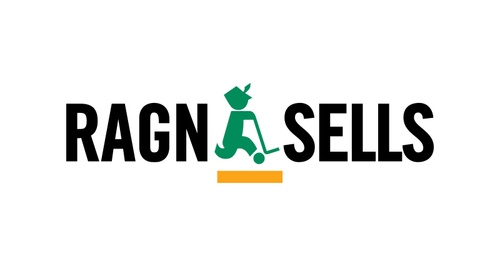Ragn-Sells: EU’s new water strategies reinforce the need for circularity
 Aquaculture
AquacultureWith two new initiatives, the European Water Resilience Strategy and the European Ocean Pact, the EU takes a strategic approach to water management. Environmental company Ragn-Sells welcomes the increased focus on water as a resource while highlighting the need for circular solutions, including turning wastewater treatment plants into resource plants.
According to the UN, the ever-increasing extraction and processing of virgin raw materials is responsible for half of all climate emissions, 90 percent of biodiversity loss, and 90 percent of water stress in the world. It contributes directly to the overshooting of six out of nine planetary boundaries defined by science.
"The linear economy is putting unprecedented pressure on our planet, not least on the fundamental and life-sustaining water systems. Circularity is key to transitioning away from an unsustainable system, reducing water stress, and conducting business within planetary boundaries", says Pär Larshans, Chief Sustainability Officer at Ragn-Sells.
The European Ocean Pact aims to protect the health of our oceans and optimise Europe’s maritime assets, while the intention of the European Water Resilience Strategy is to strengthen water security and protect the EU against water-related risks such as water scarcity and pollution.
Ragn-Sells welcomes the European Commission’s dedication to address water and environmental challenges through policy-driven action that promotes the transformation to a circular economy.
"The EU’s new strategies offer a good starting point for creating water resilience and security for all. Today, we are wasting the majority of our water and its valuable resources such as energy, nitrogen, and phosphorus. If we are serious about creating a sustainable society, we need to start seeing wastewater treatment plants as resource recovery plants", says Pär Larshans.
Using wastewater as a resource to a much larger extent could ease the pressure on freshwater supplies, support the transformation to a circular economy, and bring more detoxified raw materials back into circulation.
"Today legislation only support “doing bad things less bad”, instead we need to give wastewater facilities a new rule as resource producers. There is a river of raw materials and clean energy right beneath our feet, waiting to be tapped", says Pär Larshans.
Today circular innovation provides the water treatment sector with technology to produce freshwater for agriculture, industry, and households, generate energy, eliminate nitrous oxide emissions, and produce valuable raw materials like nitrogen fertiliser and animal-feed quality phosphorus.
Pär Larshans took part as a Swedish delegate in the 3rd United Nations Ocean Conference (UNOC-3) in Nice and was invited as speaker to the Blue Oceans Finance Forum in Monaco the days before UNOC-3.
For further comment or interviews, please contact:
Pär Larshans, Chief Sustainability Officer at Ragn-Sells Group, +46 (0)70 927 29 63, par.larshans@ragnsells.com
Press Officer: press@ragnsells.com or +46 70 927 24 00.
FACT: Innovative solutions for water management from Ragn-Sells
Ragn-Sells’s innovations on water management include the patented solutions Ash2Phos and Aqua2N, developed by innovation subsidiary EasyMining. Ragn-Sells Havbruk is a project where energy and nutrients are produced from sludge from fish farms. PFAS removal solution SELPAXT has been developed by Chromafora, where Ragn-Sells is a major shareholder.
About Ragn-Sells Group
The environmental company Ragn-Sells converts waste into raw materials that can be used over and over again. Ragn-Sells drives the transition to a circular economy through solutions that reduce its own and other actors' environmental and climate impact. Ragn-Sells is a family owned corporate group founded in 1881. The company operates in four countries and employs 2,760 people. In 2024, Ragn-Sells’ turnover was SEK 8.8 billion. www.ragnsells.com
Contacts
Press Officer
- press@ragnsells.com
- +46709272400



